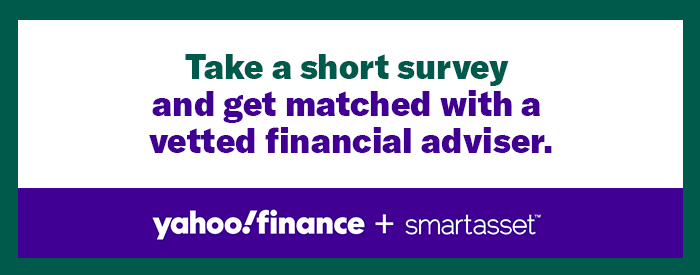I've been writing about personal finance for five years. In that time, I've read and written countless articles about all the ways to make, spend, and save money more effectively.
Over the years, I've taken some of that advice and applied it to my own personal finances. Other tidbits were left on the cutting room floor because – let's face it – financial advice isn't one-size-fits-all. And that shouldn't be the case.
For example, when it comes to sexuality, I've always hated the idea that it's normal to feel tied down. In the past, when I deprived myself and put most of my hard-earned money into a savings account for later, I was actually less motivated to save.
In my opinion, the best savings strategies are about finding the right balance between caring for Future Me while ensuring Present Day Me doesn't feel like she's making too many sacrifices or going without.
Over time, I've implemented several key habits that fit my lifestyle and make saving money easier. Maybe they work for you too.
This embedded content is not available in your region.
1. Take advantage of a high-yield savings account (HYSA)
Here's a hard truth: Money sitting in your wallet, under your mattress, or even in a traditional savings account isn't growing as much as it could. In fact, you'll probably lose money on .
However, with one you can earn as much as 5% APY on your balance. And the interest you accrue will also start earning interest thanks to the magic of .
Before you get started, be sure to read the fine print and consider account fees, minimum balance requirements, how easy it is to access your money, and more.
Not sure where to start? Check out our rankings of what's available today.
2. Set up automatic contributions (but check your account balance regularly)
This is a big one. I got into the habit of it early on. It was more effective to set aside some of my paycheck before I could think of other ways to spend that money. This allowed me to adjust to working with a little less money each payday, while knowing my savings account balance was growing in the background.
However, I still like to log in every now and then to check my account and see how it has grown over time. It boosts my motivation and makes me feel more confident in my future goals.
3. Be intentional about how you use financial windfalls
If you've ever received a work bonus, you know the temptation that can come with seeing a piece of land in your bank account. The first time I earned a bonus, part of my brain was already figuring out how I would use that money to finance my next vacation. But then the financial writer in me intervened, and I waited to buy plane tickets.
Instead, I decided to take a small portion of my bonus for a splurge (sometimes you just have to scratch the itch and treat yourself). I then spent the rest of my bonus paying off my car loan. By making this decision, I felt like I had rewarded myself for my hard work while still taking a step that brought me closer to my financial goals.
Paying off my car freed me from a monthly payment that was significantly eating into my budget. In the future, I would have additional income to put into my savings, invest and use for other debt payments.
Since then, whenever I've received a bonus, or other unexpected money, I've made it a habit to treat myself in some small way and look for ways to improve my finances in a more meaningful way.
4. Budget for at least one night out or activity per week
Prioritizing my savings goals forced me to limit my social outings, but not completely. Investing in my friendships and activities that bring me joy is also a priority for me. I even made it a line item in my budget.
Setting aside money for dinner with friends, movie night, or some other activity at least once a week gives me something to look forward to and makes it easier to make smaller sacrifices.
For example, if I plan to attend a birthday dinner on Friday evening, I will feel more motivated to cook for myself all week in anticipation of that expense.
Read more:
5. Outsource to save time and money
This may be a good choice, but delivery services have helped me save money on groceries. Granted, grocery delivery apps come with some subscription fees, but they've helped me cut back on my impulse purchases, leading to total savings.
If something looks good in the store, you can easily put it in your shopping cart without thinking. But by outsourcing my shopping, I'm more likely to buy only what I need. This way of shopping has also made it easier for me to plan my meals for the week and reorder the same groceries at a later time so I don't have to spend as much time on these tasks.
Many apps allow you to filter items by price or also have a tab specifically for sales and discounts.
Other tasks you can outsource include cleaning, laundry, gardening, and more. Consider using some of your newfound free time to work on freelance projects for extra income or do a financial audit to see where else you can save.
6. Consider a rewards membership with your favorite retailers
If you are a regular customer at a store, you may at some point be asked to participate in a rewards program. Sometimes it pays to sign up if you shop regularly. Many retailers offer discounts, cash back rewards, or even special pricing for rewards members. You may also receive emails or text alerts informing you when there is a sale.
That's why when my favorite stores or nearby gas stations offer free rewards programs, I always take the extra few minutes at the counter and sign up. The key, of course, is to avoid impulse buying or overspending when I find out a lot. The goal is to be rewarded for future purchases that I was already planning to make anyway.
7. Check your subscriptions
I've been guilty of downloading and paying for a subscription and then forgetting about it, or downloading a trial version of an app and neglecting to cancel the subscription before being charged.
For that reason, I regularly go into my phone's settings and go to the Subscriptions tab to see my active subscriptions and how much I'm paying for them. When an app is about to be renewed, I think about whether I'm actually using it or whether it's time to cancel my subscription.
I also check my subscriptions outside of the App Store. You can also consider setting up or running an upcoming recurring transactions.
8. Put potential purchases on hold
When you put a purchase on hold, you wait a certain amount of time before buying it, giving you a chance to reconsider whether you really need it. While I don't necessarily practice this when purchasing a coffee mug or a pack of gum, I do if the purchase is over a certain amount.
When I see a specific item I want to buy, I make a note on my phone with the price and a link to whether it is available online. A few days or weeks later, I look at that note again.
Sometimes I decide I really want that item. It may even have been on sale, which could be an added bonus, or I may have had time to find that same item for a lower price elsewhere.
However, in most cases I have completely forgotten about the item or decided after some time and distance that it is not worth the price tag.
In other words, suspending purchases won't always prevent you from spending money, but it can give you the chance to make an informed decision about your purchase.
9. Join the AARP
Early in my career, I heard from a financial influencer that there is no minimum age (formerly known as the American Association of Retired Persons).
The organization targets people over 50, but anyone 18 and older can get a membership and enjoy discounts on restaurants, hotel and resort stays, airline tickets, car rentals, cruises, insurance and more. The annual membership normally costs $16, but now it costs $12.
10. Rent clothes
As a 20-something with a slew of rehearsal dinners, baby showers, and the like filling my social calendar, it feels like I'm always in need of a new outfit for an upcoming event.
One way I've been able to save money is by renting clothes instead of buying them. Many different clothing rental services give you access to high-quality pieces without the high price tag and allow you to refresh your wardrobe at a fraction of the cost. This is especially true when it comes to special occasion outfits that you will probably never wear again.
You can also use these services to switch up your everyday wardrobe, try out different styles and decide which pieces are worth investing in.
11. Make it easy to say “no.”
There can be a lot of social pressure to spend money even though you don't necessarily want to. Learning to say “no” has been one of the most effective and empowering aspects of my money-saving journey.
There are cases when declining an invitation is the smartest move, whether it's skipping dinner with friends at a fancy restaurant that's out of my budget, or politely declining an invitation to a destination wedding and sending a gift. (You may have heard TikTokers call this “.”)
Changing my mindset to see saying no as an empowering and necessary step toward achieving my savings goals rather than a limitation has made all the difference.



